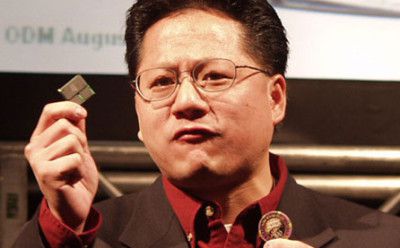From our front-page news:
If there's one man with a lot to say, it's NVIDIA's CEO, Jen-Hsun Huang. Taiwan-based DigiTimes had the opportunity to sit down with Jen-Hsun and pick his brain over current NVIDIA issues and to see what he plans to see happen with the company in the future. A lot of what's said has been known for a while, but he does well to reaffirm his stance on certain issues.
When questioned about the mobile GPU debacle, Jen-Hsun gave the same line he's been giving for a while... that the company has been more than adamant in working to get the issue fixed. He mentioned that NVIDIA is willing to pay far more than what the chip is worth to have them replaced, so it's hard to fault the company here. The problem shouldn't have happened in the first place, but at least it appears consumers can get their notebook fixed without issue, or cost.
Also in the interview he's questioned about fabs, and whether or not NVIDIA will ever own one. Jen-Hsuan strongly suggests that they don't need one given their current success, but it doesn't seem he's ruling it out completely. He does assure that TMSC and UMC will remain partners for the next few years at least. The interview covers quite a variety of subjects, so it's worth a read if you want to get caught up with NVIDIA happenings.

However, I would like to comment on Intel's push to using x86 architecture for GPUs. High-end graphics technology is not something you can achieve by just stepping through the door. Intel's hope of changing the whole GPU industry is not going to be something easily achieved.
Source: DigiTimes
When questioned about the mobile GPU debacle, Jen-Hsun gave the same line he's been giving for a while... that the company has been more than adamant in working to get the issue fixed. He mentioned that NVIDIA is willing to pay far more than what the chip is worth to have them replaced, so it's hard to fault the company here. The problem shouldn't have happened in the first place, but at least it appears consumers can get their notebook fixed without issue, or cost.
Also in the interview he's questioned about fabs, and whether or not NVIDIA will ever own one. Jen-Hsuan strongly suggests that they don't need one given their current success, but it doesn't seem he's ruling it out completely. He does assure that TMSC and UMC will remain partners for the next few years at least. The interview covers quite a variety of subjects, so it's worth a read if you want to get caught up with NVIDIA happenings.

However, I would like to comment on Intel's push to using x86 architecture for GPUs. High-end graphics technology is not something you can achieve by just stepping through the door. Intel's hope of changing the whole GPU industry is not going to be something easily achieved.
Source: DigiTimes
